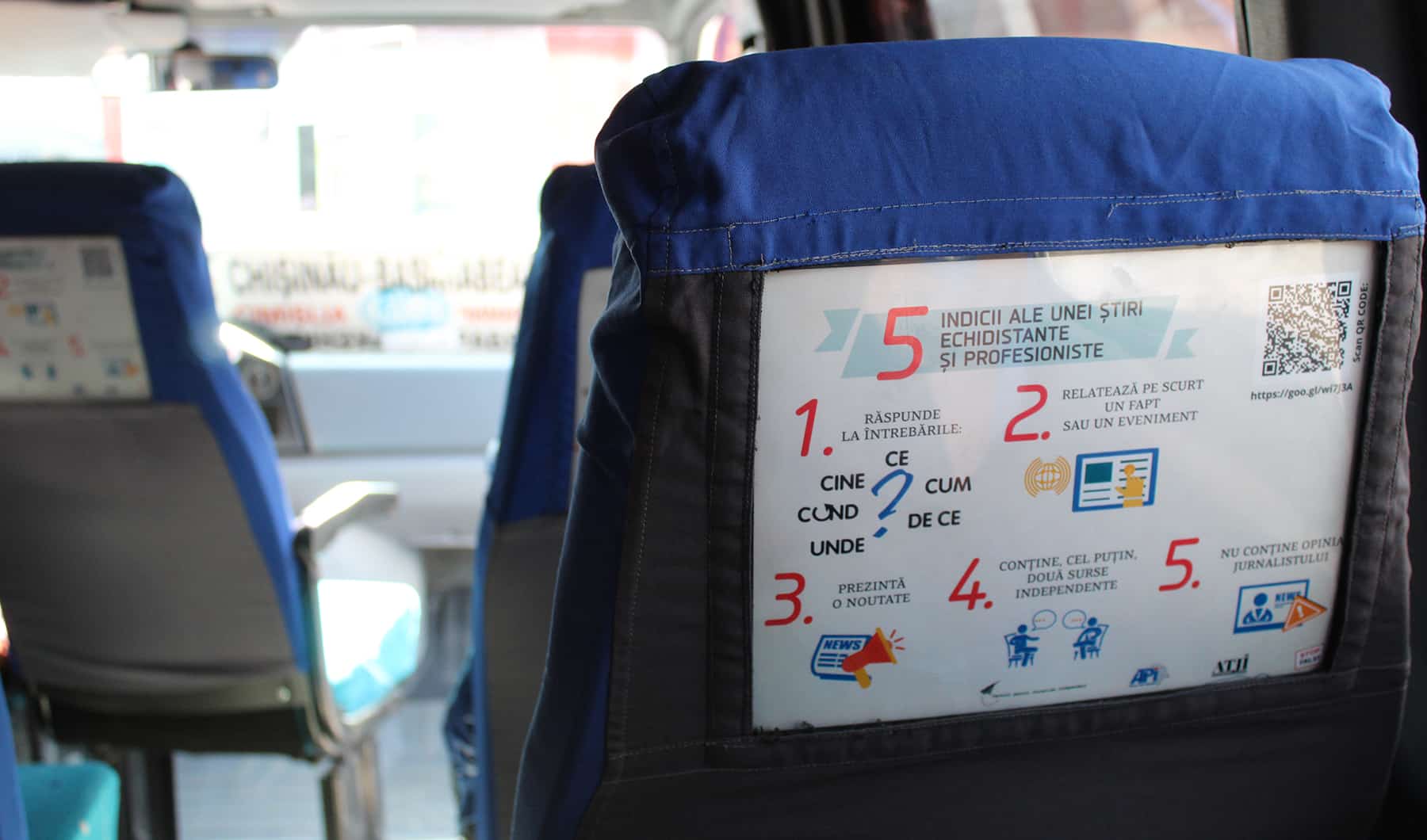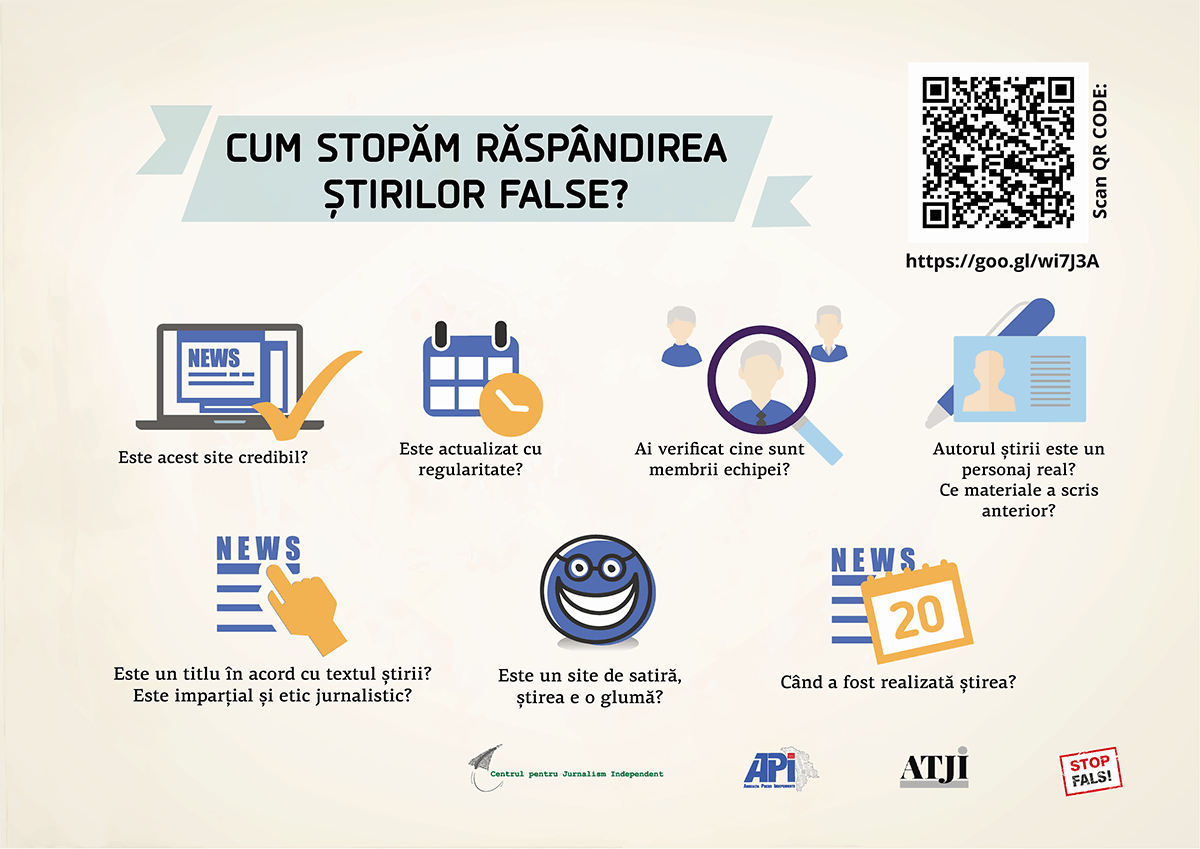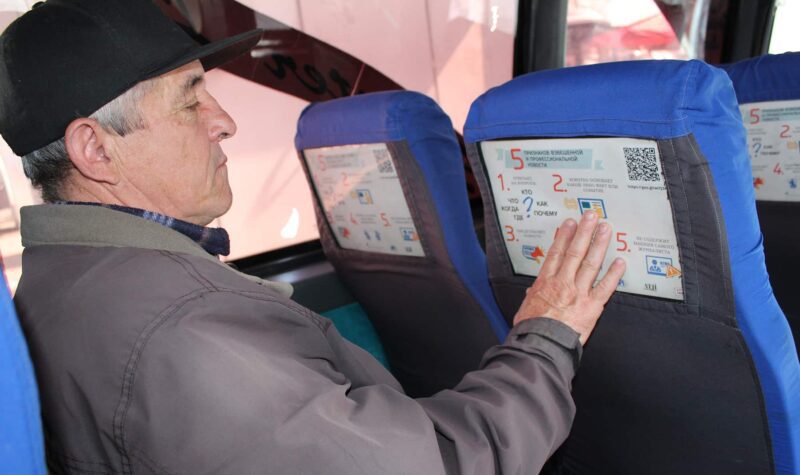Moldova is the poorest country in Central Europe, and according to Transparency International, among the most corrupt. More than 80 percent of domestic television stations are owned by people affiliated with political parties. Moldova continues to face Russian dominance, including in the media space, and has been dealing with an avalanche of “fake news.”
In February, before the parliamentary elections, Facebook removed 168 accounts, 28 pages, and eight Instagram accounts from its platforms after it was discovered they were targeting people in Moldova with misinformation and disinformation. This was a result of the efforts of journalism organizations in Moldova that are fighting the problem.
Coming at the issue from another angle, in March, Internews launched a six-month media literacy campaign targeted at under-informed rural communities and aimed at arming citizens to identify truth in the media.
The campaign provides on-the-go media literacy information to commuters and other people in transit by placing media literacy infographic posters on minibuses throughout the country. This form of public transport carries passengers between the capital and remote cities and villages as well as across all three regions (the northern, central, and southern parts) of the country.

Translation: Five Indications of Unbiased and Professional News
1. Answers the following questions: what? how? why? where? when? who?
2. Focused / short reporting on a fact or event
3. Presents something novel
4. Refers to at least two independent sources
5. Does not include the opinion of the journalist
Some passengers welcomed the mini-bus initiative. Others questioned why media institutions that manipulate consumers haven’t suffered any legal consequences. Several young passengers mentioned that they had no time to read the posters as they were preoccupied with other activities like playing games or chatting on their smartphones.
Internews’ partner, the Advertising Agency Promotion Group, adapted and printed approximately 10,000 posters and infographics, which have been distributed and placed on the backs of seats of 111 minibuses in Moldova. The posters were designed by the Association of Independent Press, Internews partner Center for Independent Journalism, the STOP FALS platform, and the Association of Independent TV Journalists.

Is this website credible?
Is it regularly updated?
Did you verify who are the members of the team?
Is the listed author a real person? What materials did he/she worked on so far?
Is the title reflecting the content of the news?
Is it unbiased and observes journalism ethics?
Is the website a satire website, is this piece of news a joke?
When was this piece of news made?
The Minibus Campaign was funded by USAID and UK Aid through Internews’ Media-M project.
